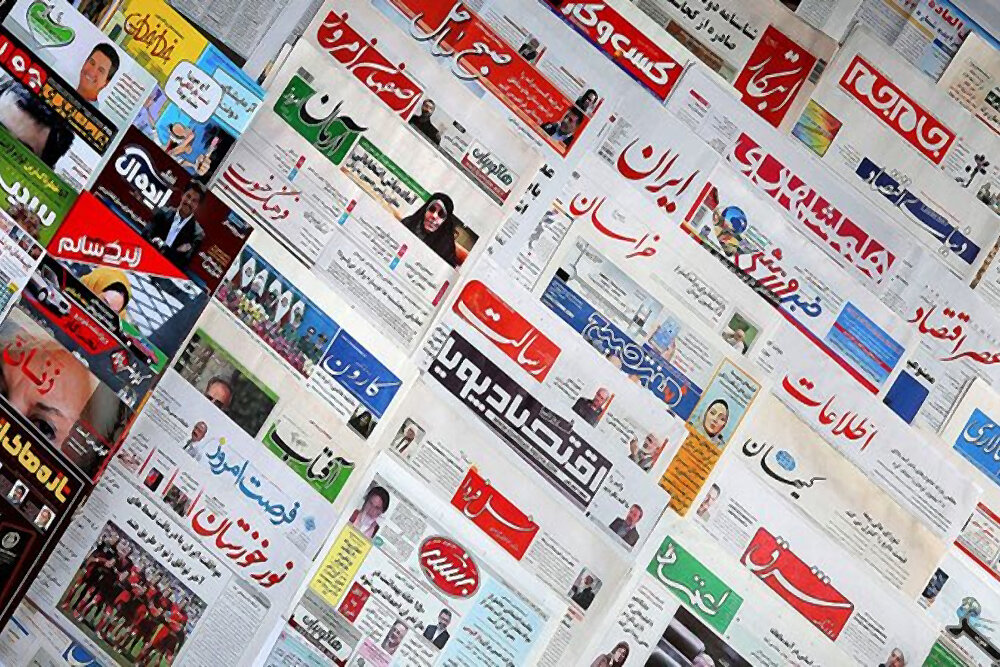Protests harm people’s livelihood

Another conservative newspaper, Javan, also blamed the protests for prices rises, saying they have hurt the economy and affected people’s livelihood.
Javan interviewed senior analyst Hamidreza Jeihani to conclude that “the first victims of social upheavals are the people, because in the shadow of seditions, the social capital of the government has decreased and it will be a negative pulse for investors. The unrest causes economic risks to increase and the prices of goods and services to rise, causing inflation and more pressure on people’s livelihoods. And finally, the process of socio-political tensions will lead to economic instability, increase in inflation and escalation of prices.”
Kayhan: Riots are to blame for foreign currency prices
The conservative Kayhan publication blamed the unrest for the sharp drop in the Iranian national rial against foreign currencies.
The economic factors show that the country is not in a critical situation and many key variables are controlled or are in the process of improvement.
Surveys show that the country’s foreign exchange reserves are in a very good condition, and the increase in oil sales has exceeded one million barrels, Kayhan reported, citing some examples.
It then referred to the recent incidents in the country and wrote that “it seems that one of the most important factors for the currency drop is the outbreak of unrest over the past three months.”
The protests, most of which occurred virtually in social media, caused rise in prices of foreign currency, gold and housing.
Of course, it seems that with the failure of the enemies in the recent riots, the upward trend of foreign currency prices has also stopped, the publication wrote, pointing to the people’s panic buying as another reason behind the issue.
Sharq: IAEA-Iran talks
The pro-reform Sharq newspaper reported on the possible trip of the officials of the International Atomic Energy Agency to Iran and its diplomatic consequences.
The visit of IAEA officials to Iran in the coming days can serve as a positive step towards resolving the conflicts between the two sides. Of course, the deep gap between the positions of Tehran and the IAEA makes reaching a favorable point for resolving differences complicated and long.
In addition, adjusting and resolving the differences between Iran and the IAEA does not mean a resumption of the nuclear talks to revive the JCPOA, but one of the current obstacles in the way of resuming the Vienna talks will be removed.
The recent foreign policy situation has left Tehran with no choice but to cooperate with the agency as a leverage to reduce the pressures, Sharq analyzed.
Etemad: Why printing more money?
Etemad, running a story headlined “Why do you print more money?”, reported that money printing over the past seven months broke the 20-year record.
In September, the debt of the government sector and the banks to the central bank has increased up to 40-50 percent, it wrote, considering these two factors as the “powerful engine of money printing”.
“Borrowing money from central bank will grow by the end of this months and Iranian currency fall will experience a speed-up,” the newspaper claimed.
Also, in a note the newspaper argued that the security of the society is contingent on social welfare and wrote that “economic insecurity is due to the lack of knowledge-based economy, which is disrupting the economic market and people’s livelihood.”
“Social welfare can be defined as sharing, developing and maintaining meaningful relationship with others. It is necessary for the officials to pay special attention to the people in the lower classes and vulnerable groups of the society by increasing their income.”
Arman-e Emrooz: Reform promise is certain
“Reform in the structure of the country is inevitable,” Gholamali Jafarzadeh, a political analyst, told Arman-e Emrooz.
“Reform is a type of necessity that the sooner it is done, the less costs it will incur. In fact, we have to say that reforming the structure of the country is inevitable. Any reform should be done according to the needs of the society, while people can see the process,” he highlighted.
The newspaper viewed reform as an only way out of trouble.
Sazandegi: Wrong policies, inexpert officials
“The victims of the exchange-rate moves are the people, who have to pay more every day because of wrong policies of inexpert officials,” Sazandegi publication said, reacting to the declining Iranian rial.
“The increasing foreign currency rate has brought the government into a new challenge. At the same time, inflation has also reached its highest level over the last 45 years,” the newspaper said.
On the other hand, the hope for reviving the JCPOA has dimmed greatly, it opined. Considering the issues surrounding the JCPOA coupled with a significant budget deficit are leading to drop in value of national currency, it added.
Maybe the money market of the country needs a management shock, the columnist suggested.
